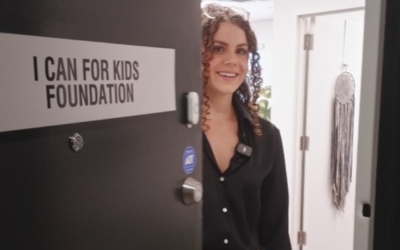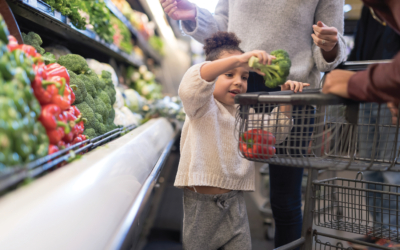Updated on: January 24th, 2024
Food insecurity is a term that describes the experience of an individual or household who lacks the income to buy enough food on a regular basis. A new report on the rates of food insecurity across Canada shows that the ratio of children who live in a food-insecure home in Alberta has soared from 1 in 6 in 2019 to more than 1 in 4 today. Based on the 2021 metropolitan census, this alarming statistic translates to more than 75,000 kids in Calgary who don’t have regular access to healthy food.
What does childhood food insecurity look like?
Food insecurity looks different for every child and family based on a number of shifting factors. The negative effects of food insecurity tend to evolve from day to day depending on fluctuations in the balance between household finances and household expenses. For example, a family may suddenly become food insecure when they experience a major financial shock, such as job loss, death, eviction, or a health crisis. Another family may constantly struggle to afford enough food because they simply don’t have quite enough income to pay all their essential bills each month.
The harmful impacts of food insecurity grow more intense as the severity of food insecurity shifts from marginal to moderate to severe. Nearly all food-insecure kids deal with persistent anxiety about whether their family will run out of food. They often eat the same inexpensive and low-nutrient foods every day for long periods of time while money is tight. Some children need to reduce the size of snacks and meals when their parents try to cope with barriers to securing full-time work at a sufficient wage. Other kids go an entire day or more without any food when the household budget becomes so constrained that their parents must choose to pay rent instead of buying groceries.
What’s the best way to tackle food insecurity?
Advocates in Canada recommend income-based policies and interventions that improve financial resiliency as the most effective way to alleviate and prevent food insecurity. That’s why I Can for Kids (iCAN) transitioned from providing food to children to offering grocery gift cards to families: we want to address the root cause of food insecurity. In fact, published research with the University of Calgary validates the efficiency and dignity of our evidence-based approach.
Our grocery gift card program represents a vital opportunity to shift the charitable response towards income-based solutions that truly address the stress of living with food insecurity. Our aim is to continue expanding our reach until poverty reduction strategies take full effect. We remain strongly optimistic that with the valued support of funders, donors, champions, and our agency partners, we’ll continue to ease the burden on food-insecure kids and families through our year-round grocery gift card program.
To join iCAN’s growing list of champions, check out the ways you can get involved or donate.
To learn more about I Can for Kids and their unique approach to childhood food insecurity, visit www.icanforkids.ca
About Donald Barker
Donald Barker has worked as a registered dietitian for more than 25 years. He also has a professional background in communications and has long advocated for populations who face adverse, unjust, or systemic barriers that lead to higher rates of poor social, mental, emotional, and physical health outcomes. Donald currently volunteers as an Advisor with iCAN to support our transition towards evidence-based approaches that help improve the well-being of children in Calgary who live in low-income and food-insecure households.
About I Can for Kids Foundation
I Can for Kids works closely with multiple agency partners to target and distribute grocery gift cards to food-insecure families who are most in need. The iCAN grocery gift card program is a more dignified and inclusive approach to dealing with food insecurity, allowing families to shop where everyone else shops and to choose foods that are appropriate for their health and cultural needs. Explore their website to discover more about iCAN’s impact over the years.
For more information and media inquiries, please contact iCAN Executive Director, Bobbi Turko at bobbi@icanforkids.ca.




